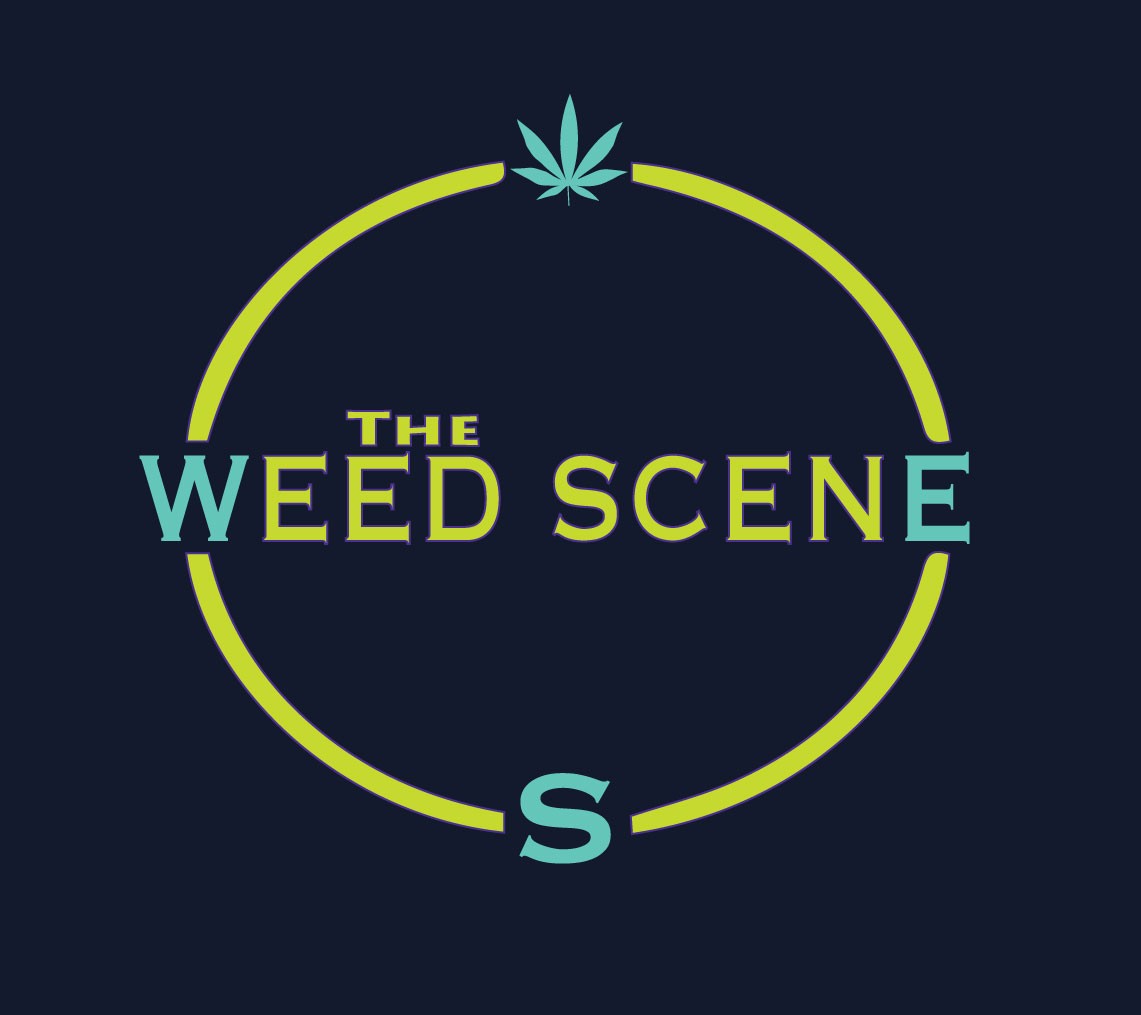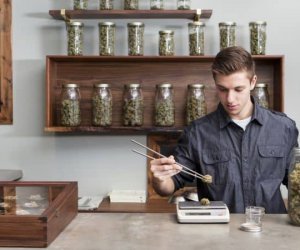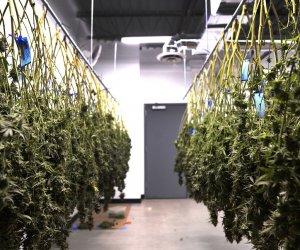Marijuana Legalization in Colorado
Consuming & Possessing
How old do I need to be to legally consume marijuana?
Sec. 16(3) requires that individuals need to be 21 years of age, or older.
What type of identification do I need to bring in order to purchase retail marijuana?
You will need to bring a government-issued identification card to prove your age. See Sec. 16(5)(c). The Colorado Department of Revenue, which has been tasked with regulating marijuana in Colorado, lists acceptable identification cards as Colorado driver’s licenses, military IDs, and passports among other things.
How much marijuana may I possess?
Sec. 16(3)(a) states that individuals may possess less than one ounce of marijuana without violating the law.
Most of the law determining an individual’s use of marijuana is located in Colorado Constitution, Art. XVIII, Sec. 16(3). Individuals will also want to consult Colorado Revised Statutes (CRS) 18-18-406. Title 18 is Colorado’s Criminal Code and this section lists “offenses relating to marijuana and marijuana concentrate.” Finally, individuals will need to consult any case law interpreting the constitution and statutes of which there is very little at this early stage in the development and interpretation of this area of law.
What if I possess more than 1 ounce?
CRS 18-18-406(4) specifies the penalties for possessing more than two ounces of marijuana. The penalties vary from a level 2 drug misdemeanor to a level 4 drug felony. CRS 18-18-406(5) specifies that a person who possess no more than two ounces of marijuana commits a drug petty offense, punishable by a fine of not more than $100. Presumably, this provision means possessing more than one ounce and less than two ounces in order to reconcile the statutory language with the constitutional language.
Is it legal to possess marijuana paraphernalia?
Yes. Sec. 16(3) also decriminalizes the “possessing, using, displaying, purchasing or transporting” of marijuana accessories.
What are marijuana accessories?
Sec. 16(2)(g) defines marijuana accessories as “any equipment, products, or materials of any kind which are used, intended for use, or designed for use in planting, propagating, cultivating, growing, harvesting, composting, manufacturing, compounding, converting, producing, processing, preparing, testing, analyzing, packaging, repackaging, storing, vaporizing, or containing marijuana, or for ingesting, inhaling, or otherwise introducing marijuana into the human body.”
Colorado Revised Statutes and the Colorado Session Laws
Statutory laws are published in two forms. They are initially published as slip laws. The slip laws are then collected and published in session law volumes which are chronologically arranged by the date in which the underlying bill was enacted into law through the legislative process.
Statutory laws are also published as a code. Codes are topical organizations of statutory or regulatory laws and include all laws currently in effect at the time the code is published on a particular topic. The Colorado Revised Statutes (CRS) is the official statutory code of Colorado. It is published annually in September and includes the laws currently in effect through the latest session of the General Assembly.
The CRS is organized into titles, articles and sections. The highest level of organization is the title and the CRS contains 44 titles. Each title contains one or more articles. And within articles are the various code sections. Taken together, a particular section is cited as title-article-section. The citation CRS 18-18-406 refers to Title 18, Article 18, Section 406. Researchers can access a copy online through the Colorado General Assembly’s website.
Where may I consume marijuana?
Sec. 16(3)(d) decriminalizes the “consumption of marijuana” but further provides that such consumption cannot be conducted “openly r publicly or in a manner that endangers others.” Given this provision, individuals may certainly consume marijuana in the privacy of their own homes but beyond those confines, the answer is less clear.
Marijuana smoke has a distinctive smell. Even behind closed doors, the smell of marijuana can travel to other parts of a building and, if smoked outdoors, to my neighbor’s property. Can my neighbor require that I cease using marijuana on my property?
If the smell of marijuana smoke rises to a certain offensive level, then the individual may be required to stop smoking marijuana. Such problems fall under the law of nuisance, and this is typically regulated by local government ordinance. For a fuller analysis of possible remedies, please see the blog post by Neal McConomy.
What is meant by “openly and publicly?”
Who knows. The phrase is not defined by Section 16, nor is it defined anywhere in the Colorado Revised Statutes. While the phrase is used by a few Colorado court cases, it is not defined or used in the same or similar context as in Section 16.
How am I to interpret “openly and publicly?”
Ultimately, the interpretation will be decided by the courts. However, we can try to understand how this might be applied by considering analogous areas of law and by considering how it might apply to particular situations. Section 16 specifically states in two different places that marijuana should be treated “in a manner similar to alcohol.” Therefore, we can speculate how possessing and using marijuana might be handled if it were alcohol. Can an individual consume alcohol on their back porch? Can they consume alcohol on their front porch? Can they consume alcohol in a public place if the alcoholic beverage is enclosed in a non-descriptive container (i.e., a brown paper bag)? Can alcohol be consumed on campgrounds? If the campground prohibits alcohol, can individuals consume alcohol in their tents? If marijuana follows alcohol consumption, then public consumption of marijuana could be treated similarly in these situations.
Researching Legislative Intent
When the words of a statute are ambiguous, legal researchers can turn to a variety of tools to help interpret the word or phrase. One method is to study the legislative history of the statute to determine what legislators intended the word or phrase to mean. A legislative history includes committee reports, expert testimony, historical or statistical reports prepared on the legislation and of course the statements made by legislators on the floor of the House or Senate while debating the legislation.
Researching legislative history can be quite difficult and fraught with challenges. The first challenge is to locate the documents that comprise a legislative history. This is particularly difficult in Colorado in which legislative history consists of committee reports listing changes to the language of bill text and audio recordings (without transcripts) of committee hearings and floor debates. Starting with the 2012 legislative session, these recordings are now located on the General Assembly’s website, but earlier recordings need to be requested from the State Archives. The other challenge is finding documents that contain meaningful references to the ambiguous word or phrase which may not have been considered by the legislators.
In this case, the legislation in question is in the constitutional amendment which was not debated by Colorado legislators although they did debate the Colorado Retail Marijuana Code which implements Section 16 and the other laws amended by implementing Section 16.
What is the rationale of “openly and publicly?” Is it to prohibit the public display of the act of consuming marijuana or the public display of the after-effects of marijuana on the user?
This too is not clear. Is this part of Section 16 attempting to prohibit the public display of one consuming (really smoking) marijuana or is it attempting to prohibit the public effect of having consumed marijuana? Marijuana can be eaten in the form of candies, brownies and other food products. A bystander cannot tell that the food product contains marijuana unless something is denoted on the package. In this instance, does consuming in a public place violate this part of Section 16? Certainly, the eating is open and public but it is unclear that such eating means anything different than for normal foods. Certainly, smoking would violate “openly and publicly” as the method of smoking and the smell of marijuana smoke is quite obvious. However, if openly and publicly refers to the act of ingesting marijuana, then like alcohol, any form of open and public consumption, even if the person made an effort to conceal it, would violate this prohibition in Section 16 where the activity is prohibited.
Section 16 states that we should treat marijuana like alcohol. Can I smoke marijuana at a bar?
This activity is also unclear. Smoking marijuana is no different than smoking tobacco to the extent that both produce smoke and second-hand inhalation by people situated nearby. Presumably, the prohibition against smoking tobacco would apply to marijuana.
What about ingesting marijuana at a bar? Should this also be prohibited?
There may be a number of factors involved here. Assuming the bar has met state and local laws to permit such an activity at its location, then consuming marijuana at a bar could conceivably be allowed.
The Colorado Symphony Orchestra (CSO) recently teamed up with the marijuana industry to offer a series of concerts in which concert goers were invited to bring and smoke marijuana during the concert. Was this illegal?
Initially, the CSO was going to offer a series of performances in which marijuana could be smoked and consumed. Most of these events were to be held at a private venue. However, the final performance in the series was to be held at Red Rocks Amphitheater, which is owned by the City and County of Denver and in which marijuana is not permitted. The CSO informed potential concert goers that marijuana was not permitted at Red Rocks. Stacie Loucks, director of Denver’s Department of Excise and Licenses, wrote a letter to the CSO stating that the planned concert series could be in violation of city and state law, and that failure to follow the law may result in civil and criminal penalties.7 The CSO brought its concert series into legal compliance by changing the performances to private, invitation-only events. The CSO is also considering these performances fundraisers and is stressing that the consumption at Red Rocks is prohibited.
Could the Colorado Rockies or the Denver Broncos permit consumption of marijuana at their games?
So, off we slide down the slippery slope. As noted, the CSO got around the public problem by making the event private (i.e., an invitation only event). Baseball or football tickets offered to the general public would not seem to get around this problem. Furthermore, both Coors Field and Sports Authority Stadium are government owned venues. It would seem they could not permit such activity.
Now that Colorado has legalized marijuana, is it still classified as an illegal drug by the federal government?
Yes, Colorado law does not change federal law. It is currently classified as a Schedule I drug by the federal government.
Can federal government agents arrest me for possessing and distributing it?
Yes, possession of marijuana can lead to arrest and punishment by fines and incarceration. However, it is unclear how vigorously the federal government will enforce possession laws in Colorado. The United States Justice Department, which is tasked with enforcing federal law, has indicated it won’t challenge state laws legalizing marijuana and will focus its efforts on trafficking cases and keeping the drug away from children.
Sharing and Selling
Can I share marijuana with other adults?
Yes, if the adult is 21 years of age or older; and if the amount shared is not more than one ounce; and if you do not receive “remuneration” for the marijuana given to the other person.
What is meant by “remuneration?”
Section 16 does not define the term. However, Black’s Law Dictionary, a standard reference work in the law, defines remuneration as payment or compensation.
So, I cannot sell my marijuana, even if it is less than one ounce?
Yes, that’s correct.
So, does this mean that I am breaking the law by exchanging something I own or a service I provide for marijuana from someone else?
If the amount involved is less than one ounce, it is open to discussion. But a court would undoubtedly examine a number of factors including your relationship with the other individual, the amount of marijuana exchanged, and the frequency of the exchange. The language is likely included to permit private individuals who are clearly not engaged in commercial activity to share marijuana without needing a permit or licensure from the State of Colorado, as other language of Section 16 requires.



